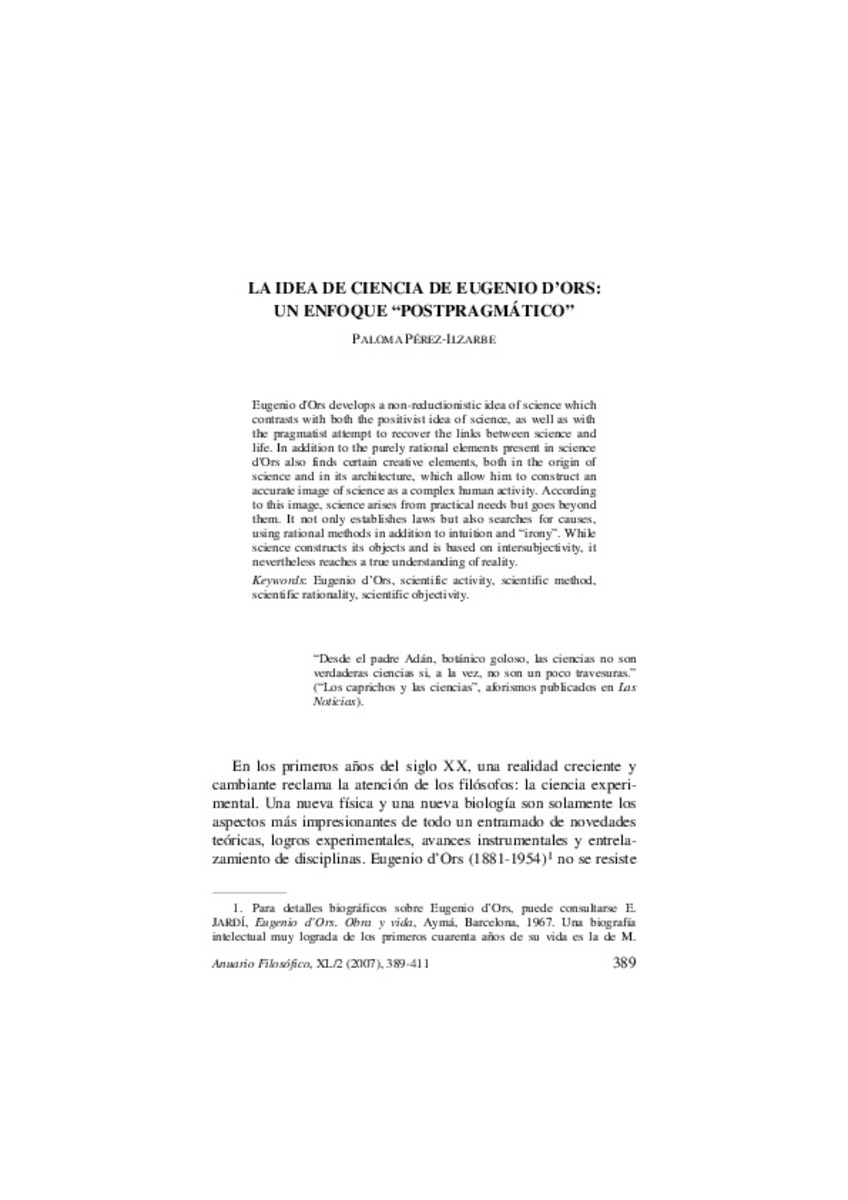Full metadata record
| DC Field | Value | Language |
|---|---|---|
| dc.creator | Pérez-Ilzarbe, P. (Paloma) | - |
| dc.date.accessioned | 2011-09-26T17:28:24Z | - |
| dc.date.available | 2011-09-26T17:28:24Z | - |
| dc.date.issued | 2007 | - |
| dc.identifier.citation | Anuario Filosófico, 2007 (40), 389-411 | es_ES |
| dc.identifier.issn | 0066-5215 | - |
| dc.identifier.uri | https://hdl.handle.net/10171/19101 | - |
| dc.description.abstract | Eugenio d'Ors develops a non-reductionistic idea of science which contrasts with both the positivist idea of science, as well as with the pragmatist attempt to recover the links between science and life. In addition to the purely rational elements present in science d'Ors also finds certain creative elements, both in the origin of science and in its architecture, which allow him to construct an accurate image of science as a complex human activity. According to this image, science arises from practical needs but goes beyond them. It not only establishes laws but also searches for causes, using rational methods in addition to intuition and “irony”. While science constructs its objects and is based on intersubjectivity, it nevertheless reaches a true understanding of reality. | es_ES |
| dc.language.iso | spa | es_ES |
| dc.rights | info:eu-repo/semantics/openAccess | es_ES |
| dc.subject | d'Ors, Eugenio | es_ES |
| dc.subject | actividad científica | es_ES |
| dc.subject | método científico | es_ES |
| dc.subject | racionalidad científica | es_ES |
| dc.subject | objetividad científica | es_ES |
| dc.title | La idea de ciencia en Eugenio d'Ors: un enfoque "postpragmático" | es_ES |
| dc.type | info:eu-repo/semantics/article | es_ES |
| dc.identifier.doi | 10.15581/009.40.29263 | es_ES |
Files in This Item:
Statistics and impact
Items in Dadun are protected by copyright, with all rights reserved, unless otherwise indicated.






